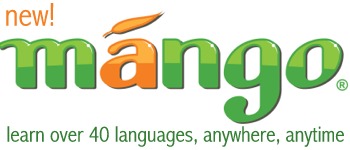

Mango Languages review cons: Where it suffers Suggestion: Do yourself a favor and turn off the English narrator (unnecessary and annoying). There’s no ability to slow down the playback but I’ve found the audio is so clear that it’s not really necessary. These are professional, studio-grade voice talent for sure. I’ve personally had a great experience learning Icelandic for this reason - it’s so clear and nice to listen to. One thing Mango Languages does extremely well is its dialogue quality. I really like that Mango has this toggle (although the pattern highlighting only works on the loose translation). How do you have it?)Īs you can see, the literal translation of this in English is quite different but the loose translation is more appropriate to its actual meaning. Mango Languages gives you the option to view both a literal and loose translation. Most foreign language translations do not precisely match the English.
MANGAO SPANISH HOW TO
I’ve explained literal vs loose translations in the past when I shared how to become a translator. Even at such a low level, I’m often referring back to the patterns I’ve seen and heard, rather than looking up grammar.

I can confirm with absolute assurance that this has helped me get a quick grasp on Icelandic already. Looking at patterns enables you to quickly piece together lexical blocks and ‘get a feel’ for what sounds/looks right. As I’ve pointed out many times in the past, this is a terribly ineffective and unnatural way to learn languages. So, in a typical course or book, you’re taught grammar rules up front and expected to ‘decode’ dialogues using the rules you’ve learned. It trains you to look at patterns rather than rules. When you’re presented with a sentence or dialogue in the lessons, what I named “chunks” (lexical blocks) are highlighted in different colors to help you recognize patterns.Īdditionally, the English text fragments are highlighted so you can match them to the target language.Īs far as I’m concerned, this incredibly simple feature is probably one of the most powerful things I’ve seen in any language course or app. This excellent feature of Mango Languages is the one thing that really caught my attention. These are topical conversation modules but there only seem to be a handful of them for specific languages. Some of the languages offer “specialty courses” too. Latin, Ancient and Koine Greek, and Biblical Hebrew), novelty/fun languages (Shakespearean English and Pirate), a native American language (Cherokee) and a creole (Haitian).

Arabic offers MSA, Levantine, Iraqi and Egyptian), ancient and religious languages (e.g. Included in the list of 70+ languages are, as mentioned, dialects and varieties (e.g. Not quite on par with Transparent Language (which has over 100 languages) but Mango is certainly one of the largest language course providers I’ve seen. Tons of language optionsĪs I mentioned above, Mango Languages offers an impressive 70+ languages (including dialects). I’ll start off with the aspects of Mango Languages that I consider great. Mango Languages review pros: What I like about it
MANGAO SPANISH UPDATE
I’ve reached out to Mango for answers on this but have yet to receive a reply (I’ll update this review if they respond). They boast of a unique “adaptive learning process” which I’ve had trouble finding detailed information on. In addition, they offer Biblical Hebrew (the first foreign language Jason Teshuba learned) and Koine Greek, Latin and even Pirate (seriously :smile:). Mango currently offers over 70 languages, including some very obscure ones and even some impressive dialect variations (it’s actually one of the only course options for Iraqi Arabic and Aramaic, among many others). Purely anecdotal of course, but I’ve noticed interest in Mango rising amongst my own readers in recent years who often recommend it to me. The company seems to be actively involved not only in libraries, but also schools (popular homeschooling choice), businesses and even the military.
MANGAO SPANISH FREE
Until fairly recently, Mango had more of a reputation as a free library resource (due to its enormous presence in libraries all over America) so to be honest, I hadn’t really seen it as an online course alternative for autodidactic language learning like Babbel.

Mango Languages has been around for well over a decade, founded by its CEO Jason Teshuba (Israeli-American?).


 0 kommentar(er)
0 kommentar(er)
